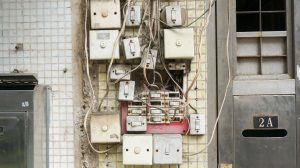Although electrical systems play a major role in our lives, they can also cause harm to ourselves and our homes. To keep yourself, others, and your home free from electrical damage, read up on these tips to increase electrical safety in your home.
Stay Alert
Learn to identify potential electrical problems and fix them right away! This can include a flickering lamp, a crimped extension cord, frayed or bent wires, or a shock or tingling when you touch an appliance.
Repair or Replace
If you notice that an appliance may have an electrical problem, stop using it immediately. If possible, have it repaired. If not, throw it away, don’t sell it or donate it because it could cause major problems for the next person.
Get Familiar with your Homes’ Fuse Box
Every home has a fuse box that controls the delivery of electricity throughout the house. If the switches are not labeled, work with someone else to test what part of the home each switch controls, and label it properly.
GFCI’s
Wherever there is water present in the home, such as a bathroom or kitchen, you will find special outlets known as “ground fault circuit interrupters”. GFCI’s have colored buttons that allow you to reset a tripped circuit. When a
GFCI detects a fluctuation in electrical current, a surge, they shut down to protect against shock. Refrigerators and freezers should not be plugged into GFCIs, in case the circuit is tripped without you knowing, so that the food does not spoil.
Electrical Cords & Power Strips
Don’t run electrical cords underneath carpets as this could cause heat to build up and creates a tripping hazard. Electrical outlets should not be overloaded with multiple power strips.
Light Bulbs
When installing light bulbs make sure to read the wattage requirements for each fixture. Having a higher wattage lightbulb than the fixture can handle, can result in a fire starting.

